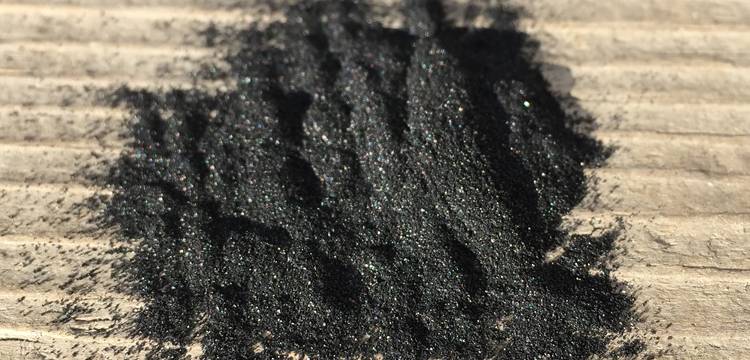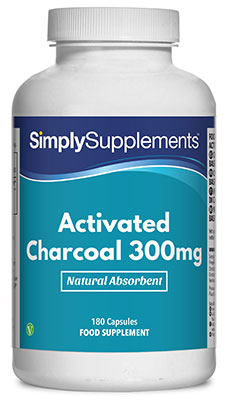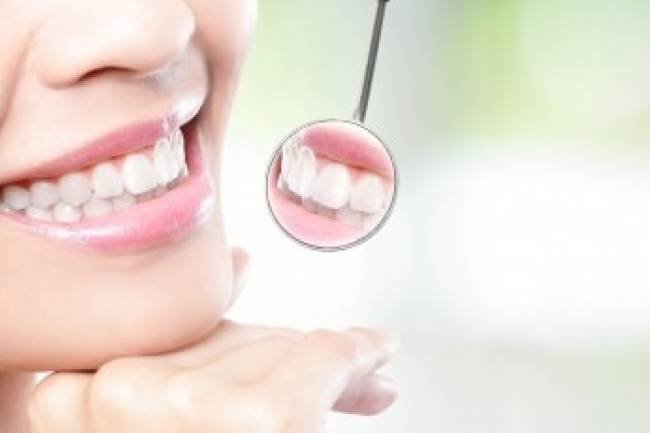Activated Charcoal for Gas & Bloating: Does It Really Help?

According to researchers, between 20 and 30% of the population routinely suffers from gas and bloating. This figure rises significantly for those unfortunate enough to be affected by Irritable Bowel Syndrome (IBS). Unsurprisingly, over half of sufferers claim that their gas has a “significant” impact on their quality of life. It is little wonder, then, that so many of us search for a solution each year. Of these, one of the most-touted options is the consumption of activated charcoal.
While the idea of consuming charcoal - essentially specially-treated coal - may sound like an odd idea, there has been a healthy amount of research carried out on the topic. In this article we’ll examine the evidence surrounding activated charcoal for gas and bloating, to see if this really is the “miracle cure” described by many mainstream media sources.
The Scientific Evidence
The Internet is rife with unsubstantiated health claims, professing incredible health benefits of seemingly inanimate items. Here at Simply Supplements, however, our qualified nutritionists work hard to base our formulations on scientific research. To this end, rather than making baseless claims about the benefits of activated charcoal, it makes far more sense to consider actual research into the mineral.
Here are a few of the more interesting discoveries to be made in recent years...
Study #1
276 patients suffering from gas and bloating - as a result of regular indigestion - were provided with a combination of activated charcoal and magnesium oxide. As with all good studies, half the patients took the active ingredient, while the other half took an inert “placebo” to account for any imagined benefits.
After one-month of daily treatment the volunteers were asked to rate their digestive discomfort. The results showed that stomach pain and bloating were both “significantly reduced” in the activated charcoal group. Furthermore, it took just seven routine treatments to see a reduction of 50% or more in pre-existing discomfort.
Study #2
The next study used fewer subjects, but measured results over an ongoing 8 hour period. Volunteers were chosen based on self-diagnosed excessive gas and abdominal bloating, with half being given activated charcoal capsules while the others received an identical-looking placebo. The results showed that “activated charcoal improved all these parameters” and that activated charcoal was “effective in reducing… abdominal bloating”.
Study #3
A separate study measured not just feelings of bloating but also passing gas after eating. Firstly, volunteers were then encouraged to eat a bean-rich meal designed to produce high levels of gas. Activated charcoal was then prescribed in varying doses to observe the differences.
Interestingly, the results showed that those individuals who consumed their activated charcoal straight after eating produced far less total gas than those who waited two hours before their supplement. This difference, however, only occurred during the first three hours of the experiment. By this point both groups had managed to start digesting their activated charcoal and so the levels equalized between the two groups.
The results of this study not only demonstrate the potent effects of activated charcoal in fighting gas and bloating but also just how quickly improvements can be seen.
The Official Statement on Activated Charcoal
So far we have examined a range of scientific studies carried out on activated charcoal. The evidence, you might agree, is really quite impressive. However there is one more piece of evidence that is worth considering; the official government guidelines about activated charcoal.
The health-related claims that can be made on a product’s packaging or sales material is governed by an organisation known as the European Food Safety Authority - or EFSA for short.
It is important to state that EFSA takes their job very seriously indeed, and requires a considerable weight of evidence before they will “authorise” any claim surrounding dietary supplements and functional foods.
Consequently, there are numerous cases where EFSA do not consider the weight of evidence to be strong enough to agree a claim. Glucosamine, for example, despite its long history of use, impressive safety profile and vast number of regular users has no authorised health claims. A manufacturer or retailer can’t claim (or even suggest) that glucosamine may help joints, even if current users have found a benefit.
It is therefore fascinating to consider that there *is* an authorised health claim for activated charcoal. To give the specific wording, EFSA agrees that activated charcoal supports the “reduction of excessive intestinal gas accumulation”.
The wealth of evidence required to authorise such a claim is exceptional, and so any reader wondering about whether to consider the use of activated charcoal for gas and bloating should feel comforted by EFSA’s findings and later statement. Even the medical professionals agree that it has potential benefits for sufferers.
Dosage
Experts disagree on the specific dosage of activated charcoal that should be used to see a beneficial effect. Part of the difficulty stems from the way in which our digestive systems are all quite different, being affected by anything from the specific foods we choose to eat, the balance of healthy gut bacteria, and any specific allergies we may have.
All the same, the European Food Safety Authority has used the wealth of studies carried out to suggest that to have a beneficial effect on stomach gas you should aim to consume at least one gram of activated charcoal “at least 3 minutes before consumption of a meal” and a similar amount soon afterward.
That said, many of our customers have reported benefits when simply consuming activated charcoal after eating in cases where gas arises.
Side Effects & Safety
Swallowing charcoal sounds like a rather odd thing to do - despite the wealth of evidence surrounding the potential health benefits. Understandably, some people question the safety profile of charcoal, wondering whether any side effects can be expected. In truth, any substance has the potential to create side effects for some individuals - but what are these, and how commonly are they experienced?
As an inert substance, whose beneficial effect is due to its physical structure rather than any chemical properties, activated charcoal is generally considered very safe in supplement form. There have been cases of issues when charcoal dust is inhaled over an extended period of time, but buying either tablets or capsules this is unlikely to cause an issue.
A bigger potential issue revolves around obstructions in the gut. Once again, however, in the few reported cases where this has happened, the individuals in question have consumed vast amounts of charcoal before issues arose. For example, one well-publicised case involved the consumption of 240 grams of activated charcoal - equivalent to over four whole tubs of our activated charcoal capsules in a short space of time. Once again, therefore, this symptom seems quite unlikely when individuals follow the recommended doses.
One factor that you should bear in mind is that activated charcoal doesn’t just absorb gas; it can also absorb other medications present in the gut. Consequently, if you’re taking prescription medications you may want to consider avoiding activated charcoal, or taking it some time away from the medicinal dose.
How Does Activated Charcoal Benefit Gas & Bloating?
The science behind how activated charcoal works its magic is intriguing. The process of “activating” the charcoal involves exposing it to ultra-high temperatures. This action creates thousands of tiny microscopic pits on the surface of the charcoal. This gives it a “honeycomb-like” consistency, and it is these tiny gaps that provide the beneficial impact.
When activated charcoal comes into contact with impurities like stomach gas or toxins (see below) these are absorbed into the tiny gaps found on the particle surfaces. They are essentially locking them away these impurities safely and allowing them to be passed swiftly in normal digestive processes.
What Else Does Activated Charcoal Do?
While the topic of this article relates specifically to activated charcoal for gas, it is also interesting to note how the structure of activated charcoal can have other benefits to health. While, as always, the level of scientific scrutiny varies from one benefit to another, here are some of the more hopeful findings from recent years...
Detox
It’s not just uncomfortable gas that can be absorbed by activated charcoal. It has also been tested and used extensively to eliminate potential toxins from the digestive system. One of the most intriguing of these is the use of activated charcoal as a way to render drugs harmless.
Studies have shown that consuming activated charcoal soon after aspirin results in a 50% drop in the volume of drug found in non-treated individuals. This is comparable with individuals who are artificially induced to vomit the aspirin back up after consumption.
However it’s not just aspirin that activated charcoal can help to detoxify. A range of other drugs can also be affected by charcoal, so an increasing number of medical practitioners are using it in cases of deliberate or accidental drug overdoses.
Cholesterol Control
High cholesterol levels are associated with heart disease and a range of associated conditions. Unfortunately, many individuals with high cholesterol are unaware of their condition until emergency action needs to be taken. Consequently, any supplement or medicine that has the potential to significantly yet safely reduce cholesterol in the body is of great interest to researchers.
One such study tested the effects of activated charcoal on individuals with high cholesterol levels. Taking 8 grams of charcoal, three times a day, seems to have “locked” some of the potentially dangerous cholesterol away, quickly removing it from the body. As a result, harmful LDL cholesterol fell by between 25% and 41% over a period of just four weeks, while beneficial HDL cholesterol rose by an average of 8%. This is a powerful and potentially exciting discovery, but more research will be required if it is to become a recommended treatment for high cholesterol.
Conclusion
As we have seen, not only is there good evidence that activated charcoal can help with gas and bloating, but that it also has an enviable safety profile. Taking these two factors into consideration, if you’re someone who suffers from discomfort as a result of a distended stomach or excessive gas build-up after eating, activated charcoal may represent a cost-effective and drug-free option.
Sources:
https://ascpt.onlinelibrary.wiley.com/doi/abs/10.1002/cpt1969105710
https://www.ncbi.nlm.nih.gov/pubmed/21478070/
https://www.ncbi.nlm.nih.gov/pubmed/7015846/
https://efsa.onlinelibrary.wiley.com/doi/epdf/10.2903/j.efsa.2011.2049
https://www.sciencedirect.com/science/article/pii/S0140673686900541
https://journals.sagepub.com/doi/abs/10.1177/106002809402800717
https://www.sciencedirect.com/science/article/pii/0736467986902192
https://www.sciencedirect.com/science/article/pii/S0196064494701709

 Richard
Richard 

























